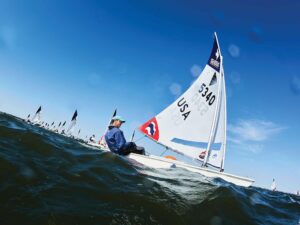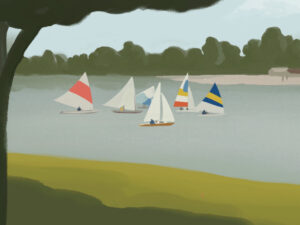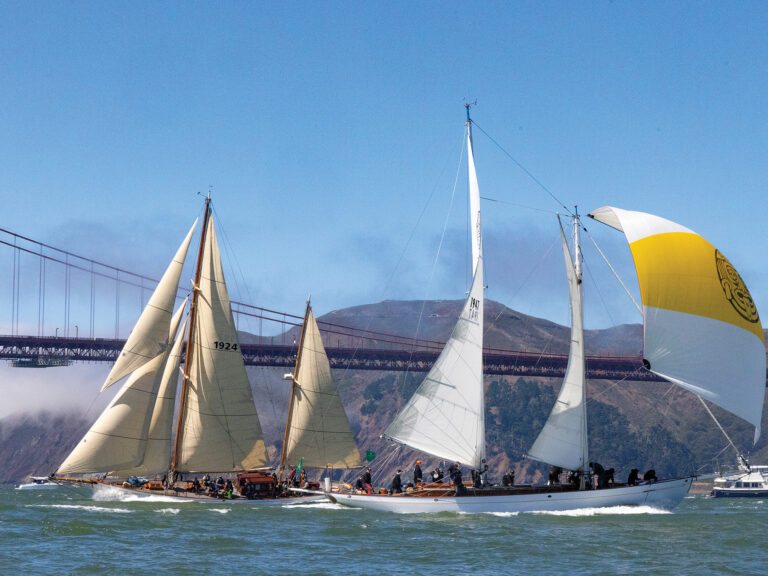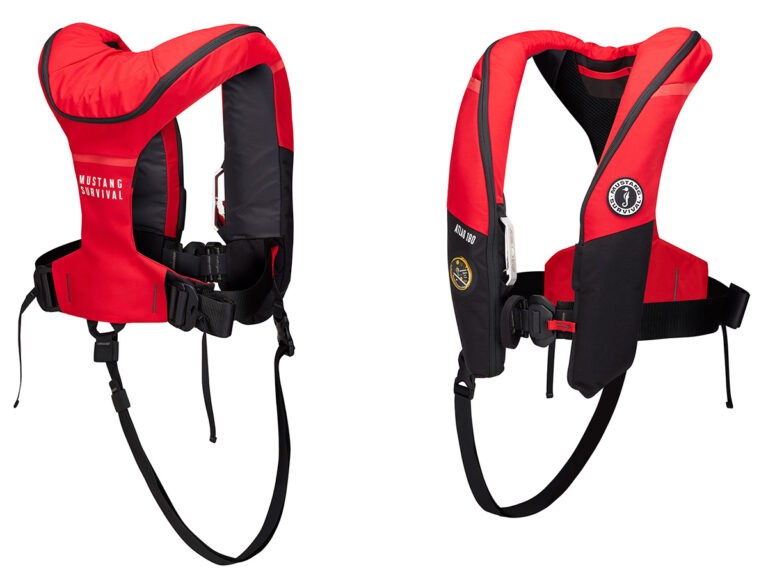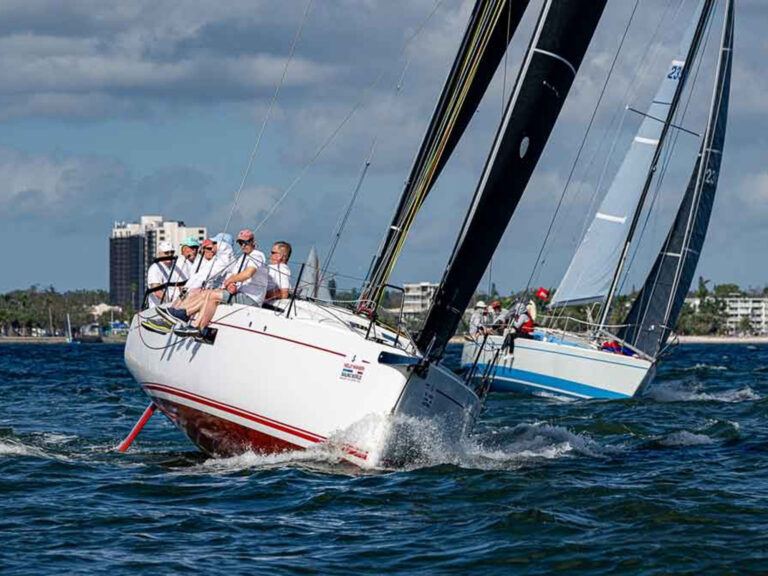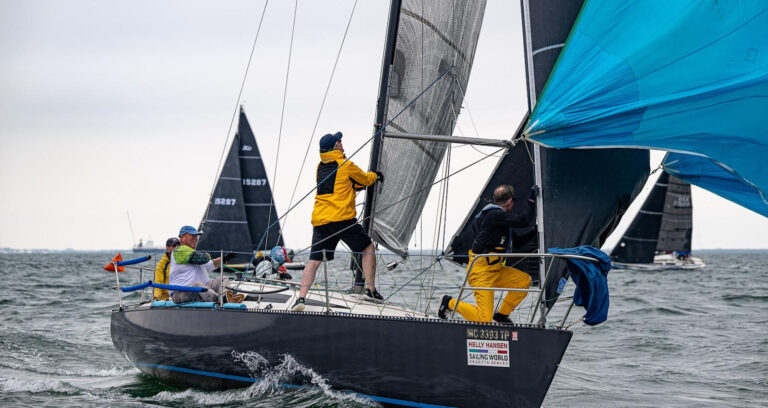“You think you know, but you have no idea.”
That’s the slogan to “Diary,” a short-lived MTV series that gave viewers an inside look at the lives of pop stars like Britney Spears. When Britney uttered the line in promotions for her episode, I remember thinking, “You’re right, Britney, I do think I know what goes on in your daily life. But I’d rather not stick around to find out….click.”
Although I never watched a full episode of “Diary,” the slogan stuck with me. In fact, last Wednesday night, as we sailed in from the racecourse, cracking Budweisers alongside other boats in Rhode Island’s Shields Fleet 9, Britney’s drawl began repeating in my head, “You think you know, but you have no idea.”
We’d just finished a frustrating, light-air race in which we had missed all the shifts and tacked our way into the back of the pack. Most frustrating for me, it was my fault. I was the one who presented the convincing argument for heading in the wrong direction, based on a strategy that, in similar conditions in the same location the night before, had resulted in near victory in Jamestown YC’s PHRF race.
I thought I knew, but I had no idea. The night before, I was on top of the shifts, able to keep the boat in good breeze and favorable current all the way around the racecourse. And we nearly won the race. But I was foolish enough to attribute the success to something besides sheer luck.
Sure enough, emboldened by my J/22 play-calling on Tuesday night, come Wednesday, I confidently directed my Shields skipper, Earle Stubbs, right into the cheap seats. There was no doubt about it; discussing the race with the folks who finished at the top, we realized how wrong we were.
My favorite part about sailboat racing is the process of deciding where to go on the racecourse and how to position yourself in relation to the other boats. But it’s also the part I find most confounding. Just as soon as I think I have it—or at least some part of it—figured out, just as soon as I make the right call, the next thing I do is make the wrong call. And then I find myself questioning the reasoning behind the right call, wondering if I just got lucky.
Which reminds me of another pertinent quote, this one from hockey player turned golfer Happy Gilmore, explaining to club pro Chubbs Peterson how he won the Waterbury Open.
Chubbs: You were great out there today. But not that great. A lot of that was luck.
Happy: Some like to call it luck. I like to call it…well, luck, I guess.

